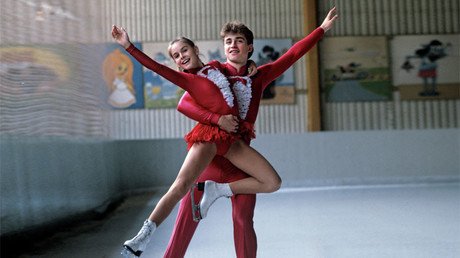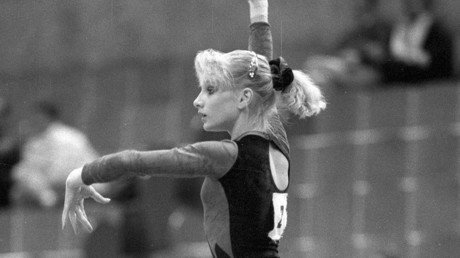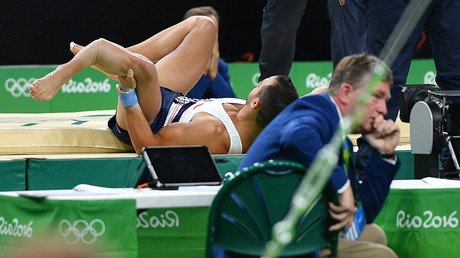The tragic tale of Soviet gymnastics star Elena Mukhina
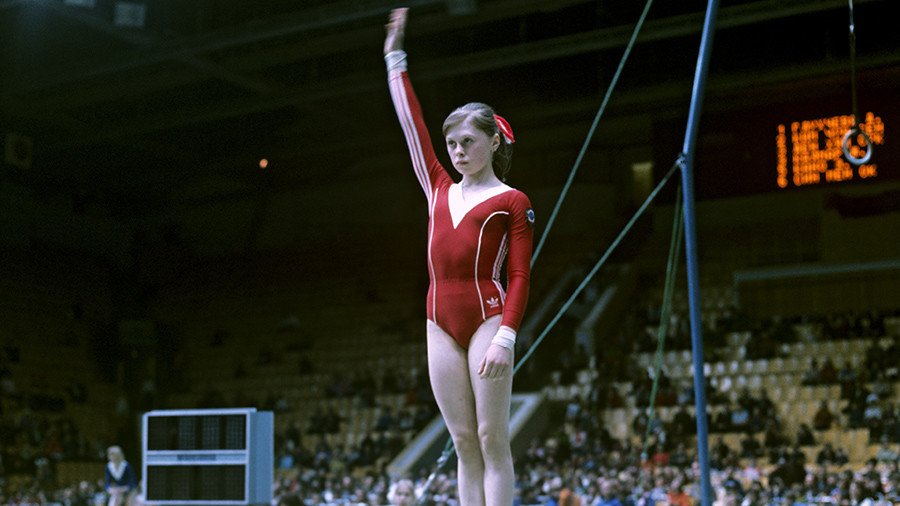
Eleven years ago, former gymnastics star Elena Mukhina, whose life and sports career were ruined by a tragic training accident, passed away in Moscow at the age of 46.
Mukhina, the embodiment of elegance and strength, sacrificed her life and health in attempt to win an Olympic medal for her country. Her tragic story, which stunned the gymnastics world, is a sad reminder of the price top-level athletes can sometimes pay in their bid to reach the pinnacle of their sport.
Mukhina was orphaned at the age of five, after her mother died in an apartment fire. The youngster was raised by her grandmother, Anna, and joined the CSKA sports club, where she started doing artistic gymnastics – something which had always fascinated her.
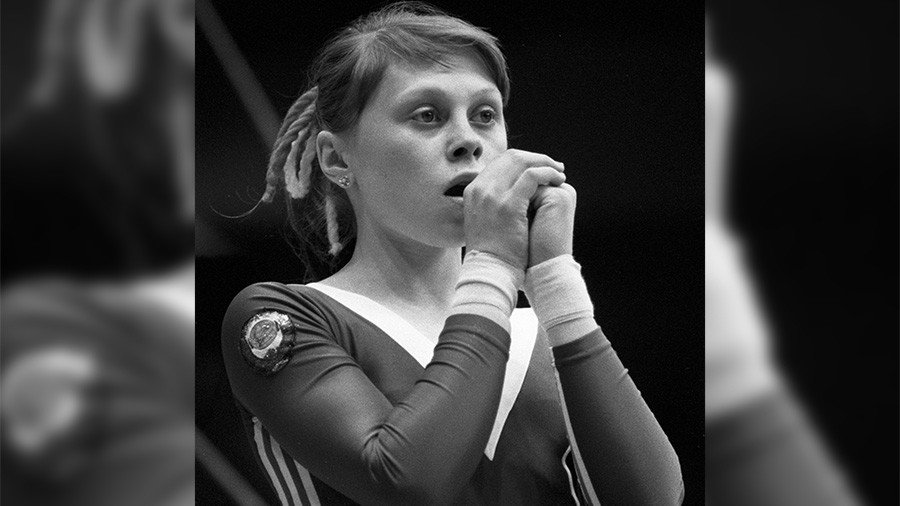
Up until 1974, she appeared an unremarkable gymnast with only modest achievements. All that changed, however, when she teamed up with coach Mikhail Klimenko, who had come to women’s gymnastics from the men’s team.
Firmly mastering techniques and elements borrowed from men’s gymnastics, Mukhina was transformed by Klimenko into one of the most promising athletes in the Soviet team.
In 1976, she won the Soviet junior all-around title, but after finishing 12th at the National Championships failed to make it to the Olympic squad, which was competing in Montreal.
Undeterred, the gymnast continued to work hard, and shot to fame at the 1977 European Championships, when she claimed silver in the all-around finals, losing only to Romanian star Nadia Comaneci, who triumphed at the Montreal Olympics as the sole gymnast to receive a perfect 10 points for her performance.
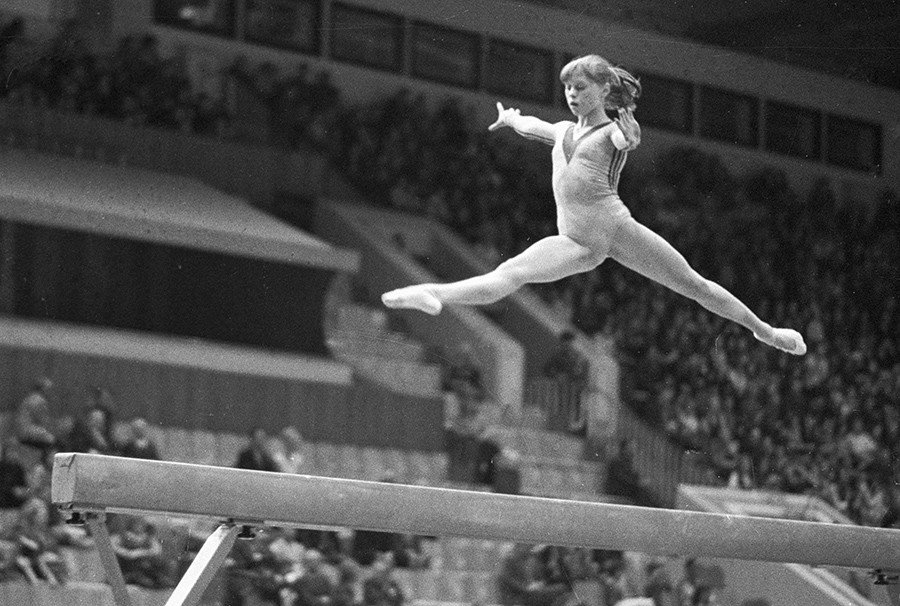
At the same championships, Mukhina took three individual titles on the uneven bars, balance beam and floor exercise, impressing the judges with the difficulty of her unique routines.
She made history at the competition by displaying her revolutionary signature elements – a full-twisting layout Korbut flip on the bars and a double back dismount on the beam.
Mukhina stole the limelight at the 1978 World Championships in Strasbourg, France, where she took five medals including the coveted all-around title, beating Olympic champions Comaneci and Nellie Kim.
Having demonstrated powerful and stunning performances, she quickly established herself as an athlete to watch at the 1980 Summer Olympics in Moscow. However, her preparation for the home Games was hampered by a leg injury, which precluded her from participating in the pre-Olympic World Championships.
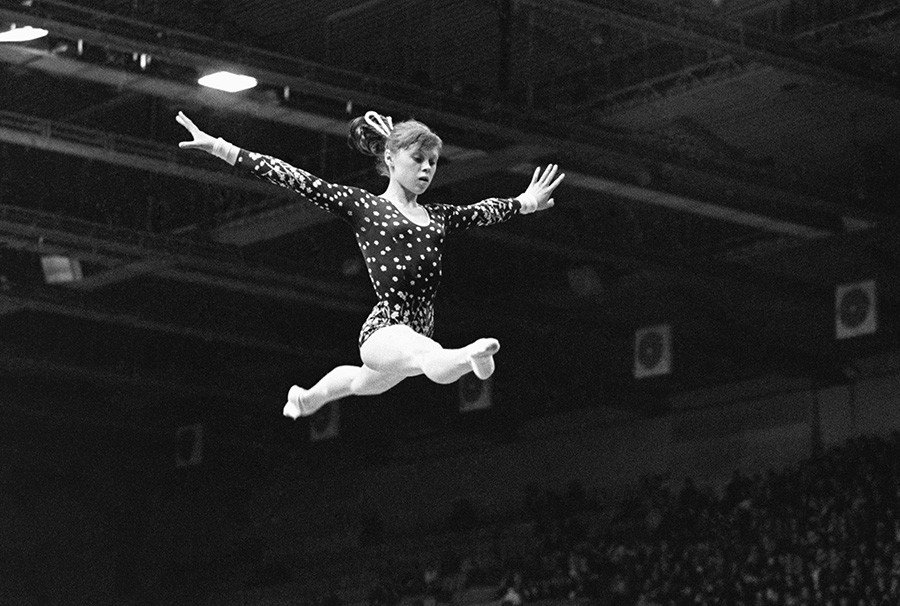
After missing out, she resumed training before her broken leg had completely healed, in order not to waste time ahead of the 1980 Summer Games, where she was expected to shine.
In a rare interview, Mukhina later confessed that she had been moved from the Central Institute of Traumatology and Orthopedics and taken to the gym, where her coach removed the cast and pressured her to train.
“They took an X-ray and it turned out that the bones had separated. I was on the operating table right after lunch. My coach came the next day and said that I wasn't conscious and that I could train in a cast,” she said in an interview taken in 1998.
On July 3, 1980, two weeks before the Moscow Olympics, Mukhina’s life changed forever. Her coach Klimenko had left the training camp in Minsk for a few days, leaving the gymnast with other trainers from the national team.
Mukhina, who was learning a new tumbling move, the Thomas Salto, which had only been performed by men, attempted to do it on the floor. She under-rotated the somersault and crash-landed on her chin, crunching her cervical vertebrae, which never knitted again.
She was just 20 years old when the tragic accident left her paralyzed for the rest of her life.
Mukhina was forced to use a wheelchair, and later said the disastrous accident had been inevitable, taking into account the conditions under which she had been pressured to train in.
The former gymnast died in her Moscow apartment in December of 2006, leaving a legacy both triumphant and tragic.
